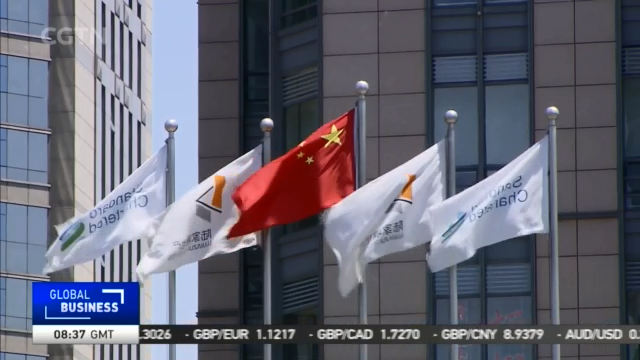
18:37, 24-Jul-2018
China-US Trade Tensions: Think tank: Data doesn't justify Trump's trade war
Updated
18:19, 27-Jul-2018
02:47

U.S. President Donald Trump cites America's trade deficit with China as one reason to raise tariffs on Chinese goods. He insists a trade war would reduce that deficit. However, experts from a Chinese think tank point out that the deficit does not justify Trump's trade war. They say he's using outdated methods to interpret the data.
According to data from the US Commerce Department, the US-China trade deficit peaked at 375.2 billion US dollars in 2017. Chinese experts agree with the number, but don't agree with the notion that China is hurting America's economy based on import-export data. One reason, as the Center for China and Globalization points out, is that the number doesn't reflect revenues made by American companies in China.
DR. WANG HUIYAO, PRESIDENT CCG "Americans are only calculating the goods movement, but now we have to realize that 40%-50% of those goods come from multinationals, particularly US companies. For example, US companies make 200 to 300 billion dollars a year in China."
The US-China trade deficit might be inevitable because of the global value chain of today. However, the US is benefiting from other forms of interaction with China. For example, the US has a surplus with China in term of the services trade.
DR. WANG HUIYAO, PRESIDENT CCG "About 3 million Chinese tourists visit the United States each year, generating 3 billion dollars worth of revenue. We have half a million Chinese students studying in the U.S. Associated costs are about 40 billion dollars there."
President Trump's top economic adviser Larry Kudlow blames China for blocking deals made between the two countries. However, China appears determined to further open up its market for the world, cutting tariffs and narrowing the negative list on market access for foreign investors. Wang points out that both sides should keep working together toward a deal.
DR. WANG HUIYAO, PRESIDENT CCG "Both countries have a responsibility and duty to put this friction behind them. It does neither country any good, and can have a negative ripple effect on the rest of the world."
Collaboration between countries is more than just trade these days, and the international value chain is more complicated than ever. Experts agree that a long term trade war WILL result in a lose-lose situation for the world.

SITEMAP
Copyright © 2018 CGTN. Beijing ICP prepared NO.16065310-3
Copyright © 2018 CGTN. Beijing ICP prepared NO.16065310-3